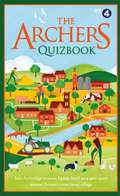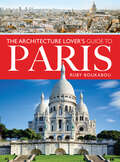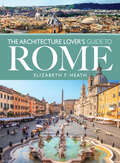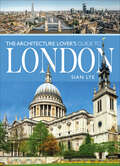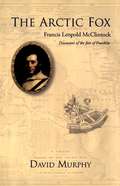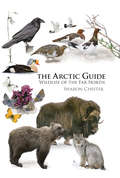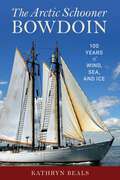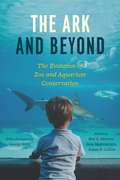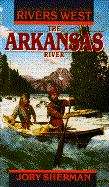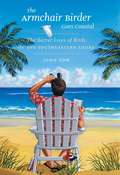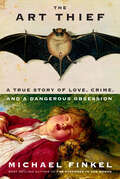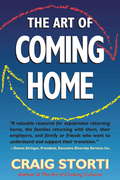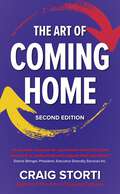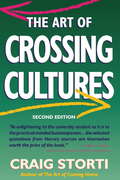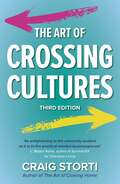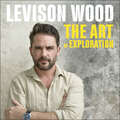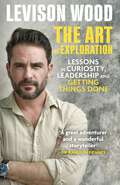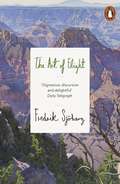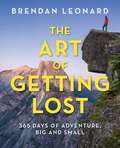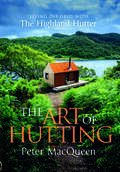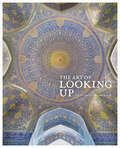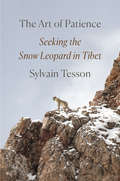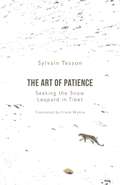- Table View
- List View
The Archers Quizbook: Join Ambridge treasure Lynda Snell on a quiz quest around Britain's most loved village
by The Puzzle HouseWhich traditionally comes first in the Ambridge year, the Village Fete or the Flower and Produce Show?Which tool appears on the Pargetter coat of arms?Which member of the Archers clan has a first name where all the letters read in alphabetical order?Ambridge is a place many of us know almost as well as our own home towns. But while millions of people are invested in the goings-on in this picturesque village, few have had the privilege of walking its winding lanes. Now you can. Join Lynda Snell, a true pillar of this rural community, as she takes you on a guided tour of radio's most well-loved village.Starting at the summit of Lakey Hill, with its sweeping views of rural Borsetshire, Lynda will lead you around the village's landmarks and institutions imparting wisdom and gossip as she goes. Sun yourself in the beer garden of the Bull, watch the world go by from a bench on the village green and don your wellies for a wander around Brookfield. There are weddings to attend at St Stephen's, productions to enjoy at the Village Hall and deals to be done at the Dower House.Each chapter centres on key locations to challenge your knowledge in all manner of Ambridge affairs. Whether you're a lifelong listener of The Archers, have an ear for gossip, or are a relative newbie, you will be able to put your area of expertise to the test. With 70 years of rich rural history to explore, you might even learn something new.
The Architecture Lover's Guide to Paris (City Guides)
by Ruby BoukabouDiscover the architectural history behind Paris’s iconic building, famous landmarks, and charming neighborhoods with this handy visual guidebook.As you stroll the streets of Paris, this informative volume will help you unlock the secrets of the city’s beguiling beauty. Covering the major landmarks as well as dozens of lesser-known architectural gems, The Architecture Lover’s Guide to Paris puts essential history and fascinating details at your fingertips. Whether you are a Paris regular or visiting for the first time, this guide will help you understand how the city acquired its unique design palette. It also offers self-guided walking tours and suggestions of some of the best hotels, restaurants, cafés, churches, parks and more. You’ll discover ancient Roman baths, 17th century mansions, Art Deco theaters, and contemporary cultural complexes. You’ll also find out where to kick back, cocktail or mock-tail in hand, with a panoramic view over the capital. Written by Ruby Boukabou, author of The Art Lover’s Guide to Paris, this book is the perfect companion for anybody intrigued by the City of Light.
The Architecture Lover's Guide to Rome (City Guides)
by Elizabeth F. HeathAn informed, photo-filled guide to “all of the essential stopping places [with] terrifically detailed information on the architectural joys of Rome.” —Books MonthlyRome’s architectural remains date as far back as the city’s founding in the 8th century BCE. The primitive settlement that began on the Palatine Hill grew over the next thousand years to the caput mundi—the capital of the world—the largest, most powerful presence in the ancient Western world. Along the way, Rome’s architectural styles, whether developed organically or appropriated from the cultures it subjugated and absorbed, were physical evidence of the politics, propaganda, and pragmatism of the times.Written for readers passionate about Rome and how its architecture is inimitably linked to its history, The Architecture Lover’s Guide to Rome is the armchair architect’s tour of the Eternal City. It provides a timeline that begins with the founding of Rome and documents its significant architectural monuments and styles through the millennia, with photos, maps and practical information for visiting.
The Architecture Lover’s Guide to London (City Guides)
by Sian LyeSince the early days as rolling hills crisscrossed with streams, London has come a long way to be one of the most exciting and innovative cities in the world. From the first Roman settlement 2000 years ago to the high tech and high rise buildings of today, the history of London is a story of experimentation, determination and triumph. A city at the cutting edge of style and fashion, rising from every fire, every attack, every setback. The Architecture Lover’s Guide to London takes a journey through history, looking at some of the most significant buildings, as well as the people who have shaped this city.
The Architecture of the Roman Triumph
by Maggie L. PopkinThis book offers the first critical study of the architecture of the Roman triumph, ancient Rome's most important victory ritual. Through case studies ranging from the republican to imperial periods, it demonstrates how powerfully monuments shaped how Romans performed, experienced, and remembered triumphs and, consequently, how Romans conceived of an urban identity for their city. Monuments highlighted Roman conquests of foreign peoples, enabled Romans to envision future triumphs, made triumphs more memorable through emotional arousal of spectators, and even generated distorted memories of triumphs that might never have occurred. This book illustrates the far-reaching impact of the architecture of the triumph on how Romans thought about this ritual and, ultimately, their own place within the Mediterranean world. In doing so, it offers a new model for historicizing the interrelations between monuments, individual and shared memory, and collective identities.
The Arctic Fox: Francis Leopold-McClintock, Discoverer of the Fate of Franklin
by David MurphyThe Shackleton of his day, Leopold McClintock (1819-1907) from County Louth was the leading Arctic explorer of the Victorian era. He undertook four major voyages, epic sledge journeys, and was the first to bring definite information on the lost Franklin party. He then rose to admiral and advised Robert Falcon Scott before the Discovery expedition in 1901. After his death a memorial plaque was unveiled at Westminister Abbey, portraits were hung in the National Portrait Gallery in London, and the McClintock Channel in the Arctic was named after him.
The Arctic Guide: Wildlife of the Far North
by Sharon ChesterThe Arctic Guide presents the traveler and naturalist with a portable, authoritative guide to the flora and fauna of earth's northernmost region. Featuring superb color illustrations, this one-of-a-kind book covers the complete spectrum of wildlife--more than 800 species of plants, fishes, butterflies, birds, and mammals--that inhabit the Arctic's polar deserts, tundra, taiga, sea ice, and oceans. It can be used anywhere in the entire Holarctic region, including Norway's Svalbard archipelago, Siberia, the Russian Far East, islands of the Bering Sea, Alaska, the Canadian Arctic, and Greenland. Detailed species accounts describe key identification features, size, habitat, range, scientific name, and the unique characteristics that enable these organisms to survive in the extreme conditions of the Far North. A color distribution map accompanies each species account, and alternative names in German, French, Norwegian, Russian, Inuit, and Inupiaq are also provided. Features superb color plates that allow for quick identification of more than 800 species of plants, fishes, butterflies, birds, and mammals Includes detailed species accounts and color distribution maps Covers the flora and fauna of the entire Arctic region
The Arctic Schooner Bowdoin: One Hundred Years of Wind, Sea, and Ice
by K. A. BealsThe schooner Bowdoin was designed and built in 1921 in Maine under the direction of naval officer and explorer Donald MacMillan. She is the only American schooner built specifically for Arctic exploration, and has sailed above the Arctic Circle 21 times. Though named for Bowdoin College, the Bowdoin is owned by the Maine Maritime Academy, where it is used in the sail training program. The Bowdoin is the official sailing vessel of the state of Maine and is a registered national landmark. Author Kathryn A. Beals explores the first one hundred years of the Bowdoin&’s life at sea, covering its inception as a vessel that could withstand the rigors of Arctic exploration, fascinating stories of it many trips north, its commissioning by the U.S. Navy during World War II—and its subsequent decommissioning and sale as a hulk—its restoration to sailing status in 1968, and its final home at Maine Maritime Academy.The vessel continues to sail and makes regular open-sea voyages.
The Ark and Beyond: The Evolution of Zoo and Aquarium Conservation (Convening Science: Discovery At The Marine Biological Laboratory Ser.)
by Ben A. Minteer Jane Maienschein James P. CollinsScores of wild species and ecosystems around the world face a variety of human-caused threats, from habitat destruction and fragmentation to rapid climate change. But there is hope, and it, too, comes in a most human form: zoos and aquariums. Gathering a diverse, multi-institutional collection of leading zoo and aquarium scientists as well as historians, philosophers, biologists, and social scientists, The Ark and Beyond traces the history and underscores the present role of these organizations as essential conservation actors. It also offers a framework for their future course, reaffirming that if zoos and aquariums make biodiversity conservation a top priority, these institutions can play a vital role in tackling conservation challenges of global magnitude. While early menageries were anything but the centers of conservation that many zoos are today, a concern with wildlife preservation has been an integral component of the modern, professionally run zoo since the nineteenth century. From captive breeding initiatives to rewilding programs, zoos and aquariums have long been at the cutting edge of research and conservation science, sites of impressive new genetic and reproductive techniques. Today, their efforts reach even further beyond recreation, with educational programs, community-based conservation initiatives, and international, collaborative programs designed to combat species extinction and protect habitats at a range of scales. Addressing related topics as diverse as zoo animal welfare, species reintroductions, amphibian extinctions, and whether zoos can truly be “wild,” this book explores the whole range of research and conservation practices that spring from zoos and aquariums while emphasizing the historical, scientific, and ethical traditions that shape these efforts. Also featuring an inspiring foreword by the late George Rabb, president emeritus of the Chicago Zoological Society / Brookfield Zoo, The Ark and Beyond illuminates these institutions’ growing significance to the preservation of global biodiversity in this century.
The Arkansas River (Rivers West, #6)
by Jory ShermanEastward, as far as the eye could see, stretched the Great Plains. Westward rose the Rockies, snowcapped shadows against the sky. In the middle flowed a mighty river-- silent, glistening, and turbulent--the bloodline of a wide and wild land. Three hard, tough men staked their claims on its potent shores; Jake Stonecipher, pioneer merchant, seeking his fortune--yet finding a war. Will Burke, a mountain man as savage as the wilderness itself. And Francisco Serrano, determined to carve a fertile ranch out of the stubborn soil. Three men blazing trails, forging a future...building lives as bold-- and as treacherous--as the Arkansas River.
The Armchair Birder Goes Coastal
by John YowWith his distinctively witty, anecdotal, and disarming voice, John Yow now journeys to the shore and shares his encounters with some of the most familiar and beloved coastal birds. Out of his travels--from North Carolina's Outer Banks, down the Atlantic coast, and westward along the Gulf of Mexico--come colorful accounts of twenty-eight species, from ubiquitous beach birds like sanderlings and laughing gulls to wonders of nature like roseate spoonbills and the American avocets. Along the way, Yow delves deeply into the birds' habits and behaviors, experiencing and relating the fascination that leads many an amateur naturalist to become the most unusual of species--a birder.Seasonally organized chapters explore the improbable, the wonderful, and the amusing aspects of these birds' lives. Yow embellishes his observations with field notes, anecdotes, and stories from some of America's finest naturalists--including John James Audubon, Arthur Cleveland Bent, Rachel Carson, and Peter Matthiessen. Combining the endless fascination of bird life with the pleasure of good reading, The Armchair Birder Goes Coastal is the perfect companion for any nature lover's next trip to the beach.
The Armchair Birder's Omnibus Ebook
by John YowAvailable for the first time together in this Omnibus E-Book, The Armchair Birder's Omnibus brings together both of John Yow's delightful books into one convenient e-book.While birding literature is filled with tales of expert observers spotting rare species in exotic locales, John Yow reminds us in The Armchair Birder, that the most fascinating birds can be the ones perched right outside our windows. In thirty-five engaging and sometimes irreverent vignettes, Yow reveals the fascinating lives of the birds we see nearly every day. Following the seasons, he covers forty-two species, discussing the improbable, unusual, and comical aspects of his subjects' lives. Yow offers his own observations, anecdotes, and stories as well as those of America's classic bird writers, such as John James Audubon, Arthur Bent, and Edward Forbush. This unique addition to bird literature combines the fascination of bird life with the pleasure of good reading.In his follow-up volume The Armchair Birder Goes Coastal, Yow now journeys to the shore and shares his encounters with some of the most familiar and beloved coastal birds. Out of his travels--from North Carolina's Outer Banks, down the Atlantic coast, and westward along the Gulf of Mexico--come colorful accounts of twenty-eight species, from ubiquitous beach birds like sanderlings and laughing gulls to wonders of nature like roseate spoonbills and the American avocets. Along the way, Yow delves deeply into the birds' habits and behaviors, experiencing and relating the fascination that leads many an amateur naturalist to become the most unusual of species--a birder.
The Art Thief: A True Story of Love, Crime, and a Dangerous Obsession
by Michael FinkelOne of the most remarkable true-crime narratives of the twenty-first century: the story of the world&’s most prolific art thief, Stéphane Breitwieser. • &“The Art Thief, like its title character, has confidence, élan, and a great sense of timing."—The New Yorker "Enthralling." —The Wall Street JournalIn this spellbinding portrait of obsession and flawed genius, the best-selling author of The Stranger in the Woods brings us into Breitwieser&’s strange world—unlike most thieves, he never stole for money, keeping all his treasures in a single room where he could admire them.For centuries, works of art have been stolen in countless ways from all over the world, but no one has been quite as successful at it as the master thief Stéphane Breitwieser. Carrying out more than two hundred heists over nearly eight years—in museums and cathedrals all over Europe—Breitwieser, along with his girlfriend who worked as his lookout, stole more than three hundred objects, until it all fell apart in spectacular fashion.In The Art Thief, Michael Finkel brings us into Breitwieser&’s strange and fascinating world. Unlike most thieves, Breitwieser never stole for money. Instead, he displayed all his treasures in a pair of secret rooms where he could admire them to his heart&’s content. Possessed of a remarkable athleticism and an innate ability to circumvent practically any security system, Breitwieser managed to pull off a breathtaking number of audacious thefts. Yet these strange talents bred a growing disregard for risk and an addict&’s need to score, leading Breitwieser to ignore his girlfriend&’s pleas to stop—until one final act of hubris brought everything crashing down.This is a riveting story of art, crime, love, and an insatiable hunger to possess beauty at any cost.
The Art of Coming Home
by Craig StortiExpecting that the home will be the way it was when you left? Are you instead shocked to discover that both you and home have changed? The Art of Coming Home offers the solid advice you need to reduce the stress of making the transition home. Leave-taking, the honeymoon stage, reverse culture shock, and eventual readjustment - The Art of Coming Home lays out the four stages of the reentry process and details practical strategies for dealing with the challenges you will face each step of the way. Veteran trainer, consultant, and world adventurer Craig Storti sketches the workplace challenges faced by returning business executives as well as the reentry issues of spouses, younger children, and teenagers. He also addresses in detail the special issues faced by exchange students, international volunteers, military personnel and their families, and missionaries and their children. Whether you are a recent returnee or are just now thinking of moving abroad, The Art of Coming Home sets itself apart as it brings the process of returning home right to the heart of the overseas experience.
The Art of Coming Home
by Craig StortiIf you were lucky, you knew about and were prepared for culture shock when you moved overseas, But unless you are very lucky, you probably don't know about and are not prepared for reverse culture shock. And you should be. Most expats find coming home after an overseas assignment more difficult than adjusting to a foreign culture-and very few organizations and companies prepare people for the experience.Veteran trainer and consultant Craig Storti sketches the workplace challenges faced by returning businessmen and women as well as the re-entry issues of spouses, younger children, and teenagers. He also addresses in detail the special issues faced by exchange students, international development volunteers, and military and missionary personnel and their families.From leave-taking and the honeymoon stage through to reverse culture shock and eventual readjustment, The Art of Coming Home lays out the four stages of the re-entry process and details practical strategies for dealing with the challenges you will face each step of the way.Whether you're about to relocate abroad, are already living abroad, about to come home, or already home, this book walks you through the biggest adjustments, personal and professional, and in this new edition presents a complete do-it-yourself repatriation workshop to help you identify and address your individual readjustment issues.
The Art of Crossing Cultures
by Craig StortiAdjusting to a new culture and getting along with the local people challenge everyone who lives and works abroad. Whether in business, diplomacy, education, or as a long-term visitor abroad, anyone can be blind-sided by a lack of international knowledge and experience and be caught at a disadvantage. In this completely revised and expanded edition of the classic The Art of Crossing Cultures, Craig Storti shows what it takes to encounter a new culture head-on an succeed. This one-of-a-kind guidebook to bridging the cultural divide - with more than 50,000 copies sold worldwide - incorporates a stellar sampling of the writings of some of the world's greatest writers, poets and observers of the human condition. Through the vivid perceptions and words of such literary legends as Noel Coward, Graham Greene, Rudyard Kipling, E. M. Forster, Mark Twain, Evelyn Waugh, and others, Storti paints an intimate portrait of the personal challenges of adjusting to another culture: anticipating differences, managing the temptation to withdraw, and gradually adjusting expectations of behaviour to fit reality. This timely new edition focuses special attention on how to deal with country and culture shock and includes many new examples of cross-cultural misunderstandings - particularly in business. Storti breaks new ground with his easy-to-understand model of cultural adjustment and tips on how to master the process and develop adaptive strategies - the heart of the cross-cultural experience.
The Art of Crossing Cultures
by Craig StortiAdjusting to a new culture and getting along with the local people can be a challenge for everyone who lives and works abroad. Whether in business, diplomacy, education, or as a long-term visitor, anyone can be blind-sided by a lack of international knowledge and experience and be caught at a disadvantage.In this completely revised and expanded third edition, Craig Storti outlines the personal challenges of adjusting to the change - anticipating differences, managing the temptation to withdraw, and gradually adjusting expectations of behaviour to fit reality - and shows what it takes to encounter a new culture head-on and succeed. Now an established bestseller, The Art of Crossing Cultures is a one-of-a-kind guidebook to bridging the cultural divide, incorporating an easy-to-understand model of cultural adjustment, and tips on how to master the process and develop adaptive strategies. This timely new edition focuses on how to deal with country and culture shock and includes many examples of cross-cultural misunderstandings. As well as revisions throughout, it includes a brand new chapter on crossing cultures at home."As enlightening to the university student as it is to the practical-minded businessperson." L. Robert Kohls, author of Survival Kit for Overseas Living
The Art of Exploration: Lessons in Curiosity, Leadership and Getting Things Done
by Levison WoodLevison Wood's most personal story yet, as he shares his most valuable rules to live life by, learned from fifteen years travelling through a hundred countries.In The Art of Exploration ex-soldier and explorer Levison Wood collates all the lessons he has learned from his journeys so far. Having written five books on his individual journeys, Levison recalls the most important learning points, on themes ranging from leadership and team-building to conceptual risk and spirituality, drawing on examples and anecdotes from across continents and cultures.Levison has always been inspired by the travels and tales of legendary explorers from Livingstone, Shackleton and Scott to modern-day figures like Ranulph Fiennes and John Blashford-Snell, and passes on lessons he has learned both from them and his own experiences on the road, to the next generation of explorers. 'By travelling at the slowest means on my journeys I have had the joy and pleasure of meeting thousands of inspiring and hopeful individuals along the way, in some of the most poverty-stricken and war-torn countries in the world. It's from these humbling characters - shepherds, soldiers and fishermen; and my walking companions like Boston, the Congolese refugee and Binod my Nepali guide that I have learnt so much about how to approach life both on the road and back home.'Many lessons of course are learned the hard way, through trial and error - and making plenty of mistakes. It's through tragedy and loss that the biggest lessons are learned. In this audiobook he talks about his own regrets and blunders that have resulted in growth and development and made him a better person. The Art of Exploration will bare all on the tough times and how Levison ended up dealing with them, providing both a reflective and entertaining account of life on the road.(P) 2021 Hodder & Stoughton Limited
The Art of Exploration: Lessons in Curiosity, Leadership and Getting Things Done
by Levison Wood'Forget routine; now is the time to embrace the unknown, step out of your comfort zone and open the gateway to the Art of Exploration.''Britain's best loved adventurer' (The Times) talks about his secrets of discovery for the first time in this revealing manual of what it means to be an explorer in the modern age. The man who has walked the Nile, the Himalayas and the Americas discusses his lessons from a life on the road, how he managed to turn a passion into a lifestyle, and what inspired and motivated him along the way. Wood explains how he and other explorers face up to life's challenges, often in extraordinary circumstances and demonstrate resilience in the face of overwhelming odds. He shares examples of pioneers in many fields, using their work to show how we can all develop our own explorers mindset and how these lessons can be applied in daily life. With chapters on curiosity, teamwork, resilience and positivity this is a book that provides a tool kit - no matter your age or profession. As Levison says, 'these lessons can help you to fulfil your potential for living a happy life, regardless of your circumstances'.
The Art of Flight
by Fredrik SjöbergAccidental Journeys with the Bestselling Author of The Fly TrapStories just begin. We rarely know where and almost never why. It doesn't matter. Nothing is certain any longer. I just want to shut my eyes, point at random and say, as a sort of experiment, that once, when I was sixteen years old, I spent a whole night singing romantic songs in the top of a pine tree. That's where it may have started.Fredrik Sjöberg continues his exploration of the pleasures and trials of those who spend their time tracing the smallest details of the natural world in these two tales of ambition, fear and hapless romance. Calling on his childhood memories and experience as a hoverfly collector, and following the trail of long forgotten entomologists before him who left their native Sweden for the national parks of the United States, Sjöberg contemplates the richness of life and the strange paths it leads us on.
The Art of Getting Lost: 365 Days of Adventure, Big and Small
by Brendan LeonardThe Art of Getting Lost will illuminate the details of dream trips, and inspiring readers to understand that adventure is not out of reach. Most of us face a couple of obstacles when it comes to living our Walter Mitty-esque adventure dreams: ideas of what to do, and concrete knowledge of how long those ideas will take. It&’s a long way from talking to some guy at the bar about his Grand Canyon Raft trip to going home and Googling a synopsis of how to make it happen, and then clicking around a guide company&’s website to find out if it takes three days or 30. But it won&’t be hard to flip through this book and get inspired.
The Art of Hutting: Live Off-Grid with The Highland Hutter
by Peter MacQueenLiving Off-the-Grid in ScotlandDon’t just experience Scottish history. Live it with The Art of Hutting, the essential beginner’s guide to sustainable living off the grid.Experience Scotland like never before. The Land of the Brave has so much to see and offer, but nothing is more breathtaking than living in its natural beauty. So how does one live away from the cities of Scotland? Inspired by traditional and modern shelter techniques, hutting expert Peter MacQueen shares how to live off the grid in The Art of Hutting. Each chapter answers many your questions about local sustainable living, from the safest bushcraft tools to growing a bountiful garden for every season. That way, you can be prepared to create your forever home and make memories in the untamed heart of Scotland.Create your own cozy Scottish hideaway. Along with learning the necessary outdoor skills to live off Scotland’s resources, this self-sufficient living book also shares how to create the hut of your dream. Off-grid living has never been cozier than with MacQueen’s hutting tips and tricks, from constructing the perfect eco-design to finding natural building materials. And with visual examples of local huts and cottages to choose from, you can create your next home with all the beauty and wonders the Scottish highlands and lowlands have to offer.Inside The Art of Hutting, you’ll also find:Best locations for hut buildingHow to create a wildlife garden made from Scotland’s natural vegetationRecommendations for fire-starter tools and firewood storageIf you liked books such as Thrive, Clansland Almanac, or Surviving the Wild, then you’ll love The Art of Hutting.
The Art of Looking Up
by Catherine McCormackA guide to spectacular ceilings around the globe that have been graced by the brushes of great artists including Michelangelo, Marc Chagall and Cy Twombly.From the lotus flowers of the Senso-ji Temple in Japan, to the religious iconography that adorns places of worship from Vienna to Istanbul, all the way to Chihuly’s glass flora suspended from the lobby of the Bellagio Hotel in Las Vegas—this book takes you on a tour of the extraordinary artworks that demand an alternative viewpoint.Art historian Catherine McCormack guides you through the stories behind the artworks—their conception, execution, and the artists that visualized them. In many cases, these works make bold but controlled political, religious or cultural statements, revealing much about the society and times in which they were created. Divided by these social themes into four sections—Religion, Culture, Power and Politics—and pictured from various viewpoints in glorious color photography, tour the astounding ceilings of these and more remarkable locations:Vatican Palace, Rome, ItalyBlenheim Palace, Oxfordshire, UKLouvre Museum, Paris, FranceDali Theatre-Museum, Figueres, CataloniaMuseum of the Revolution, Havana, CubaCapitol Building, Washington, DC, USAFour eight-page foldout sections showcase some of the world’s most spectacular ceilings in exquisite detail.First and foremost, this is a visual feast, but also a desirable art book that challenges you to seek out fine art in more unusual places and question the statements they may be making.“Deepens our perspective of 40 of the most artistic, fascinating and iconic ceilings around the world.” —Forbes
The Art of Patience: Seeking the Snow Leopard in Tibet
by Sylvain TessonA journey in search of one of the most elusive creatures on the planetAdventurer Sylvain Tesson has led a restless life, riding across Central Asia on horseback, freeclimbing the Eiffel Tower and Notre Dame, and traversing the Himalayas by foot. But while recovering from an accident that left him in a coma, and nursing his wounds from a lost love, he found himself domesticated, his lust for life draining with each moment spent staring at a screen. An expedition to the mountains of Tibet, in search of the famously elusive snow leopard, presented itself as a cure.For the chance to glimpse this near mythical beast, Tesson and his companions must wait for hours without making a sound or a movement, enduring the thin air and brutal cold. Their vigil becomes an act of faith--many have pursued the snow leopard for years without seeing it--and as they keep their watch, Tesson comes to embrace the virtues of patience and silence. His faith is rewarded when the snow leopard, the spirit of the mountain, reveals itself: an embodiment of what we have surrendered in our contemporary lives. And the simple act of waiting proves to be an antidote to the frenzy of our times.A celebration of the power and grace of the wild, and a requiem for the world's vanishing places, The Art of Patience is a revelatory account of the communion between nature and the human heart. Sylvain Tesson has written a new masterpiece on the relationship between man and beast in prose as sublime as the wilderness that inspired it.
The Art of Patience: Seeking the Snow Leopard in Tibet
by Sylvain TessonWinner of the Prix Renaudot 2019 A New York Times Best Book of 2021 &‘Extraordinarily beautiful… a long last loving glance at the planet.&’ Carl Safina, author of Becoming Wild The Art of Patience sees the renowned French adventurer and writer set off for the high plateaux of remotest Tibet in search of the elusive snow leopard. There, in the company of leading wildlife photographer Vincent Munier and two companions, at 5,000 metres and in temperatures of -25ºC, the team set up their hides on exposed mountainsides, and occasionally in the luxury of an icy cave, to await a visitation from the almost mythical beast. This tightly focused and tautly written narrative is simultaneously a dazzling account of an exacting journey, an apprenticeship in the art of patience, an acceptance of the ruthlessness of the natural world and, finally, a plea for ecological sanity. A small masterpiece, it is one of those books that demands to be read again and again.
